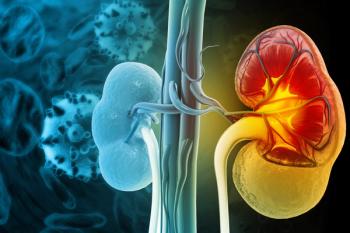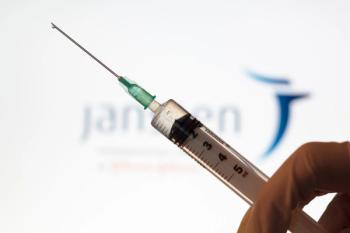
A new FDA-approved sublingual form of cyclobenzaprine HCl shows promising efficacy and tolerability in fibromyalgia.

A new FDA-approved sublingual form of cyclobenzaprine HCl shows promising efficacy and tolerability in fibromyalgia.

High-dose busulfan-melphalan enhances VRd therapy, improving progression-free survival in high-risk multiple myeloma patients undergoing ASCT.

CAR T-cell therapy shows promise for treating HER2-positive breast cancer with CNS metastases, offering a novel approach to improve patient outcomes.

The FDA approved durvalumab with FLOT chemotherapy, revolutionizing treatment for early gastric and gastroesophageal junction cancers, enhancing survival rates.

New research reveals how age, lifestyle, and diabetes alter the gluteus maximus shape, highlighting sex-specific responses and metabolic health implications.

With this approval, Itvisma has become the first and only gene replacement therapy available for children 2 years and older, teenagers, and adults with SMA.

Understanding these medications is essential for their effective use.

City-level COVID-19 vaccine mandates in the US have limited impact on vaccination rates and health outcomes.


The legislation is effective on January 1, 2026.

Data show the overall use of sodium-glucose cotransporter 2 (SGLT2) inhibitors among study participants with chronic kidney disease (CKD) was about 14.8%.

Pharmacists support acute pain management in patients on MOUD through education, optimizing therapy, guiding analgesia, and ensuring safe transitions of care.

Advanced IHC assays enhance HER2-low breast cancer detection, improving treatment eligibility for trastuzumab deruxtecan.

Particularly, younger women with chronic kidney disease (CKD) experienced the greatest survival disadvantage.

Emergency medicine pharmacists discuss how they used a gamified, PowerPoint-based virtual escape room to improve disaster preparedness training, strengthen critical thinking, and highlight the essential role of pharmacists in emergency management.

The findings from the BATURA clinical trial were presented at the 2025 ACAAI Annual Scientific Meeting.

The program’s legitimacy rests on transparency, audits, and ensuring benefits reach vulnerable patients.

The research further emphasizes the need for more attention on both chronic kidney disease (CKD) and mental health conditions.

New RSV vaccines for older adults enhance prevention efforts, yet awareness and uptake remain low. Pharmacists play a crucial role in improving vaccination rates.

FDA approves daratumumab and hyaluronidase for treating newly diagnosed light chain (AL) amyloidosis, enhancing survival rates and treatment efficacy.

Selumetinib gains FDA approval for adults with neurofibromatosis type 1, offering hope for those with inoperable plexiform neurofibromas.

An evaluation of the different dosing and administration regimens of high-dose nitroglycerin for sympathetic crashing acute pulmonary edema.

Routine multicancer early detection tests significantly improve early cancer diagnoses, reducing late-stage cases and enhancing treatment outcomes.

With this action, Thrombate III has become the first and only antithrombin concentrate approved for adult and pediatric patients with hereditary antithrombin deficiency (hATd).

Plozasiran gains FDA approval to significantly lower triglycerides in adults with familial chylomicronemia syndrome, enhancing heart health management.

Epcoritamab-bysp demonstrated impressive response rates and improved progression-free survival.

Pharmacy team members who participated in a gamified virtual escape room reported higher levels of readiness and confidence to respond to emergency-scenario disaster events.


Neladalkib offers durable responses and reduced side effects in TKI-pretreated patients.

Mount Sinai's study uncovers how ciltacabtagene autoleucel enhances long-term remission in multiple myeloma by leveraging the patient's immune response.